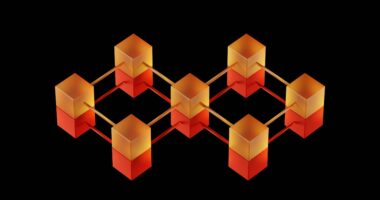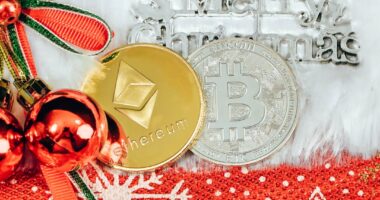Non-fungible tokens (NFTs) are digital assets that represent ownership of unique items or content, such as artwork, music, videos, and virtual real estate. Unlike fungible cryptocurrencies like Bitcoin and Ethereum, NFTs cannot be exchanged on a one-to-one basis due to their unique nature. NFTs are built on blockchain technology, which provides a secure and transparent record of ownership and authenticity.
The NFT market has experienced significant growth in recent years, with sales reaching billions of dollars and attracting attention from various sectors. This growth has been driven by collectors, artists, and investors who view NFTs as a novel way to trade and own digital assets. The technology’s ability to verify authenticity and provenance has made NFTs particularly valuable in the digital art world.
As the NFT ecosystem continues to develop, it is crucial for participants to understand the available platforms for buying and selling NFTs using cryptocurrencies like Ethereum and Bitcoin. Additionally, staying informed about recent developments and market trends is essential for navigating the expanding NFT marketplace effectively.
Key Takeaways
- NFTs are unique digital assets that represent ownership of a specific item or piece of content on the blockchain.
- The best platforms for purchasing NFTs with Ethereum (ETH) include OpenSea, Rarible, and Foundation.
- When it comes to purchasing NFTs with Bitcoin (BTC), platforms like Nifty Gateway and Mintable are popular choices.
- Recent news and developments in the NFT crypto space include major artists and celebrities getting involved in NFTs, and the rise of environmental concerns related to NFTs.
- When choosing the right NFT marketplace, consider factors such as fees, user interface, security, and the variety of NFTs available.
- Tips for buying and selling NFTs include doing thorough research, understanding the value of the NFT, and being cautious of scams and fraud.
- The future of NFT crypto is expected to see trends such as increased regulation, integration with virtual reality and gaming, and the rise of fractionalized NFT ownership.
Best Platforms for Purchasing NFTs with Ethereum (ETH)
Popular Platforms for Purchasing NFTs with Ethereum
There are several platforms that cater to buyers looking to purchase NFTs with Ethereum, including OpenSea, Rarible, and Foundation.
OpenSea: A Leading NFT Marketplace
OpenSea is one of the largest and most well-known NFT marketplaces, offering a wide range of digital assets including art, domain names, virtual worlds, and more. The platform allows users to buy, sell, and trade NFTs using Ethereum, making it a popular choice for both collectors and creators.
Rarible and Foundation: Alternative Options
Rarible is another popular platform for purchasing NFTs with Ethereum, offering a decentralized marketplace where users can create, buy, and sell digital assets using the RARI token. The platform is known for its user-friendly interface and low fees, making it an attractive option for both experienced NFT enthusiasts and newcomers to the space. Foundation is a curated marketplace that focuses on supporting artists and creators, offering a platform for buying and selling limited edition digital artwork using Ethereum. The platform has gained a reputation for showcasing high-quality NFTs and supporting emerging talent within the digital art community.
Best Platforms for Purchasing NFTs with Bitcoin (BTC)

While Ethereum is the most popular cryptocurrency for purchasing NFTs, there are also platforms that cater to buyers looking to use Bitcoin to purchase digital assets. One such platform is Mintable, which allows users to create, buy, and sell NFTs using Bitcoin as well as other cryptocurrencies. Mintable offers a user-friendly interface and a wide range of digital assets, making it a popular choice for buyers looking to use Bitcoin to purchase NFTs.
Another platform that supports the purchase of NFTs with Bitcoin is Rarible, which also accepts Bitcoin as a form of payment for digital assets. Rarible’s decentralized marketplace allows users to buy and sell NFTs using Bitcoin, providing an alternative option for buyers who prefer to use Bitcoin over Ethereum. Additionally, platforms like OpenSea have also started to accept Bitcoin as a form of payment for NFTs, providing more options for buyers looking to use Bitcoin to purchase digital assets.
Recent News and Developments in the NFT Crypto Space
The NFT space has seen rapid growth and development in recent years, with new platforms, marketplaces, and use cases emerging on a regular basis. One of the most significant developments in the NFT space has been the integration of major brands and celebrities into the market. Companies like Nike, Coca-Cola, and the NBA have all entered the NFT space, offering digital collectibles and virtual experiences to their fans and customers.
This has brought mainstream attention to the NFT space and has helped to drive adoption and interest in digital assets. Another recent development in the NFT space has been the rise of virtual real estate and metaverse projects. Platforms like Decentraland and The Sandbox have seen significant growth in their virtual real estate markets, with users purchasing land, buildings, and other virtual assets using NFTs.
This has led to increased interest in virtual worlds and metaverse projects, with investors and developers looking to capitalize on the growing demand for digital real estate.
How to Choose the Right NFT Marketplace
With so many options available, it can be overwhelming to choose the right NFT marketplace for buying and selling digital assets. When selecting a marketplace, it’s important to consider factors such as user interface, fees, security, and the range of digital assets available. User interface is an important consideration when choosing an NFT marketplace, as a user-friendly platform can make it easier to browse, buy, and sell digital assets.
Look for marketplaces with intuitive interfaces that make it easy to navigate and discover new NFTs. Fees are another important factor to consider when choosing an NFT marketplace. Some platforms charge high fees for buying and selling NFTs, which can eat into your profits as a seller or increase the cost of purchasing digital assets as a buyer.
Look for marketplaces with competitive fees that align with your budget and trading volume. Security is also crucial when choosing an NFT marketplace, as you want to ensure that your digital assets are safe from theft or fraud. Look for platforms that offer robust security measures such as two-factor authentication and cold storage for digital assets.
Tips for Buying and Selling NFTs

Research and Due Diligence
When buying NFTs, it’s important to do your research and due diligence before making a purchase. Look for reputable artists or creators with a track record of producing high-quality digital assets, and consider factors such as scarcity, utility, and demand when evaluating potential purchases.
Setting Realistic Expectations as a Seller
As a seller, it’s important to set realistic expectations for your digital assets and understand the market trends and demand for your particular niche. Consider factors such as timing, pricing strategy, and marketing when listing your NFTs for sale, and be prepared to adapt your approach based on market conditions.
Marketing and Promotion Strategies
Additionally, consider leveraging social media and online communities to promote your digital assets and connect with potential buyers.
The Future of NFT Crypto: Trends and Predictions
The future of NFT crypto is filled with exciting possibilities and potential trends that could shape the industry in the coming years. One trend that is likely to continue is the integration of real-world assets into the NFT space. This could include tokenizing physical assets such as real estate, luxury goods, or collectibles using blockchain technology, creating new opportunities for ownership and investment in traditional markets.
Another trend that is likely to continue is the rise of virtual worlds and metaverse projects. As interest in virtual real estate grows, we can expect to see more investment in virtual worlds and platforms that offer immersive experiences and opportunities for social interaction using NFTs. Additionally, we may see increased adoption of NFTs in industries such as gaming, entertainment, and sports as companies look for new ways to engage with their audiences and monetize digital content.
In conclusion, the world of NFT crypto is evolving at a rapid pace, with new platforms, marketplaces, and use cases emerging on a regular basis. As interest in digital assets continues to grow, it’s important for both buyers and sellers to stay informed about recent developments in the space and understand how to navigate the growing marketplace. By choosing the right platforms for purchasing NFTs with popular cryptocurrencies like Ethereum and Bitcoin, staying informed about recent news and developments in the NFT space, and following tips for buying and selling digital assets, participants can position themselves for success in this exciting and dynamic industry.
FAQs
What are NFTs?
NFTs, or non-fungible tokens, are digital assets that represent ownership or proof of authenticity of a unique item or piece of content, such as artwork, music, videos, or collectibles, using blockchain technology.
Where can I buy NFTs?
You can buy NFTs on various online platforms that specialize in the buying, selling, and trading of digital assets, such as OpenSea, Rarible, Foundation, and NBA Top Shot.
How do I purchase NFTs?
To purchase NFTs, you typically need to create an account on an NFT marketplace, connect a digital wallet that supports cryptocurrency transactions, and then browse and select the NFTs you want to buy before completing the purchase using cryptocurrency.
What cryptocurrencies can I use to buy NFTs?
Most NFT marketplaces accept payments in popular cryptocurrencies such as Ethereum (ETH) and sometimes other cryptocurrencies like Bitcoin (BTC) or stablecoins like USDC or DAI.
Are there any fees associated with buying NFTs?
Yes, there are usually fees associated with buying NFTs, including transaction fees for using the blockchain network, as well as platform fees charged by the NFT marketplace for facilitating the buying and selling of digital assets.
Can I sell NFTs after purchasing them?
Yes, after purchasing NFTs, you can sell them on the same NFT marketplace where you bought them or on other platforms that support the trading of digital assets.





